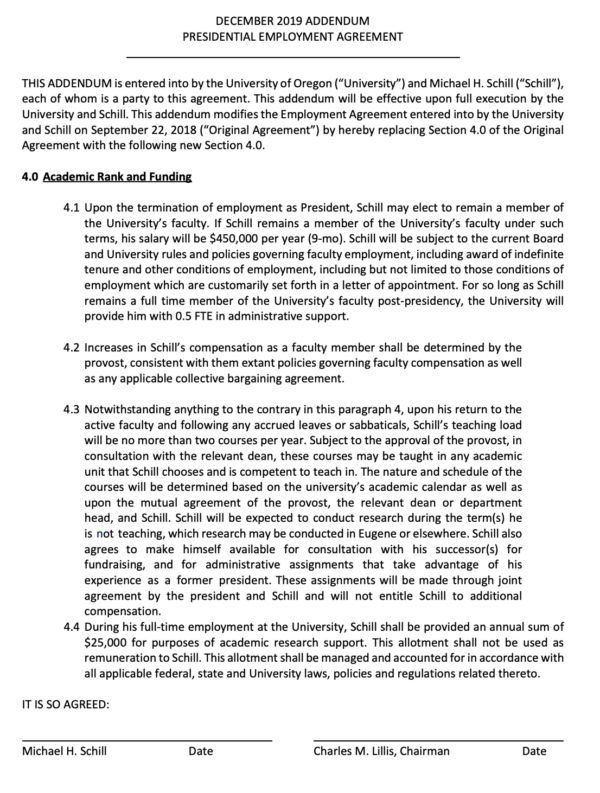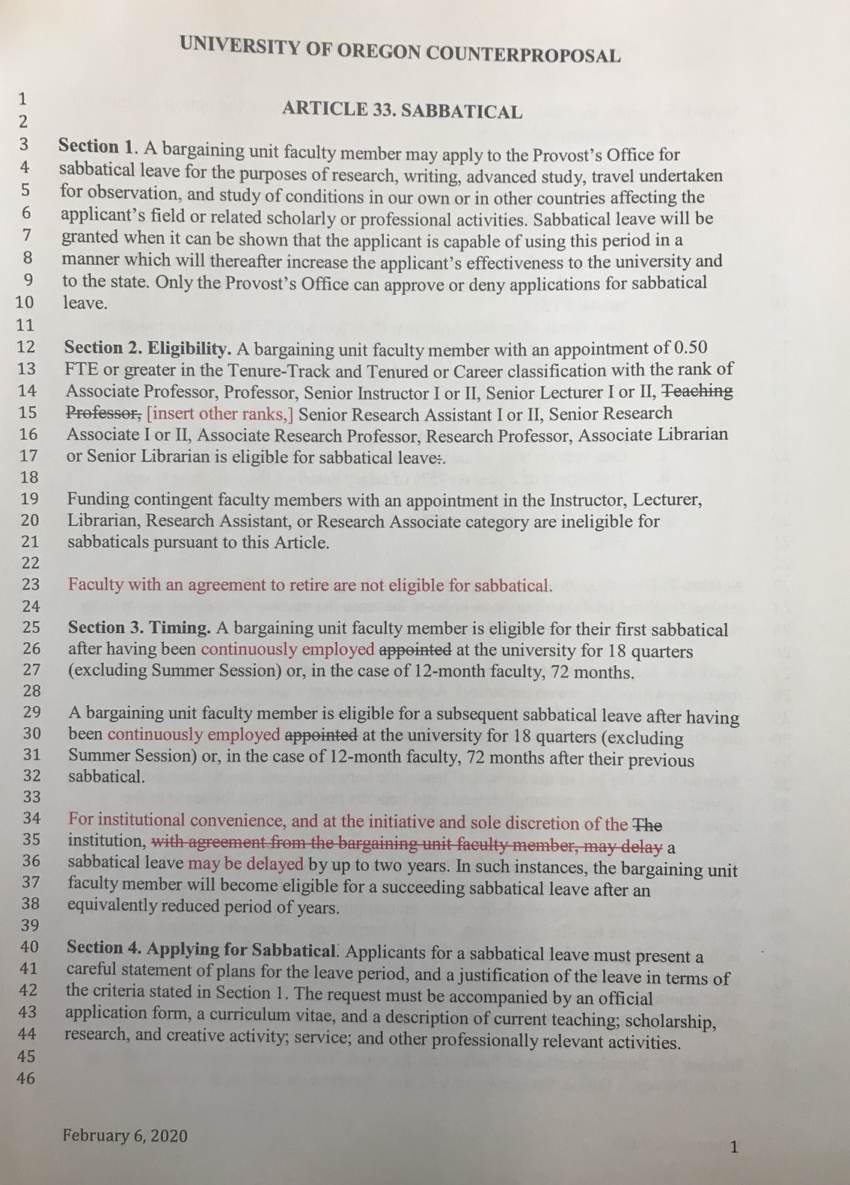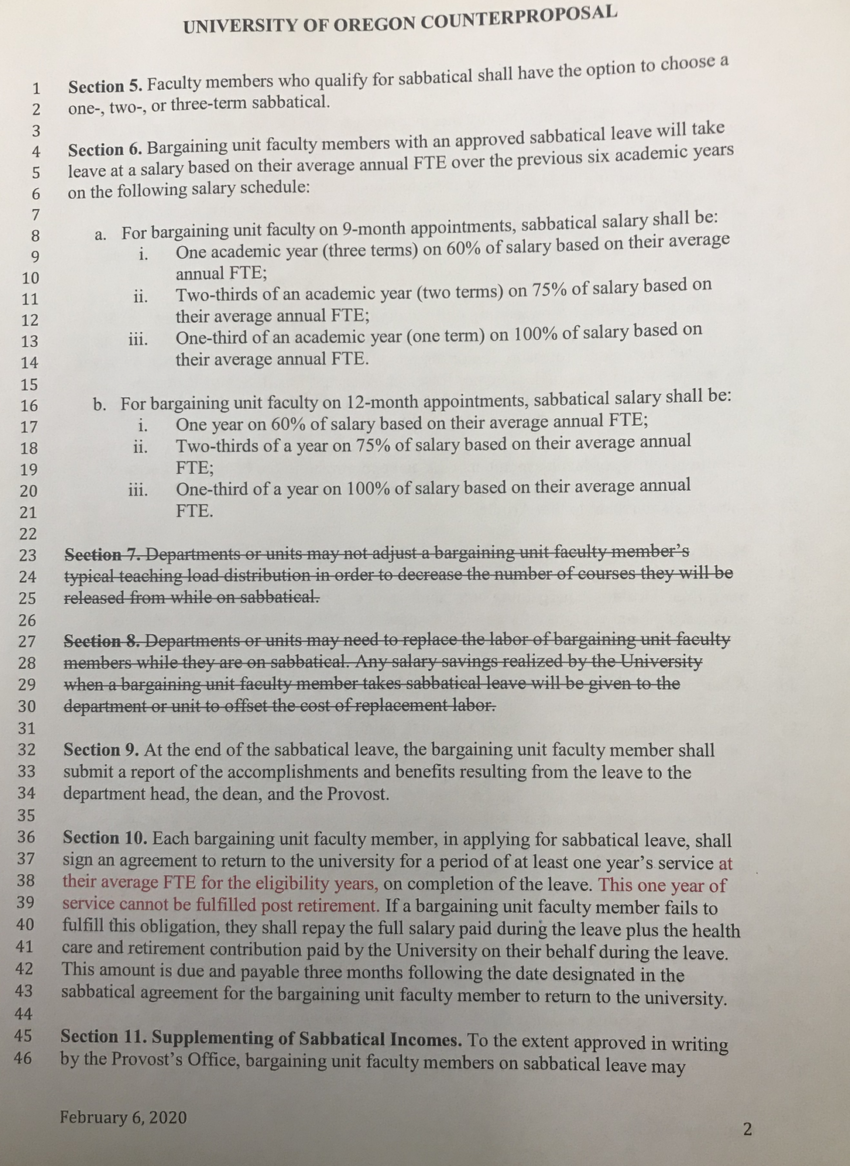Last updated on 02/06/2020
My continuing series on Budget Buckets is here. If you don’t like my blog read the official Union tweets or Facebook.
MMXX-V Live-blog. Usual disclaimer: My opinion and interpretation of what the bargainers are saying, thinking, or should be saying or thinking. Nothing is a quote unless in quotes.
Short Version: The Faculty Union pushed again for more reasonable tenure denial appeals. The Administration proposed new restrictions on sabbaticals for faculty. Those restrictions would not apply to administrators like Pres Schill, who often have far more generous sabbatical terms written into their contracts.
Faculty Union team shows up early and arranges classroom for bargaining, whilst Admin team moseys on over from their plush JH offices:
Faculty Union proposal on Appeal from the denial of tenure or promotion, Article 21:
Cecil: Lots of problems with how the university handles a few tenure cases. Union wants to strengthen the review process.
Matella: There aren’t any problems.
Cecil: Here are some examples … Epstein: Here’s another example. Green: Here’s another example.
Matella: OK, OK, we need more work on the front end of the process. But Admin is not willing to improve the appeals process. Green: This is people’s careers, why not better appeal process? Urbancic: Why not strengthen both the front end – more consistent application of criteria – and the appeals? Matella: No response.
Cecil: Moving on, we insist on language saying midterm (3rd year) reviews are purely advisory – no more terminal or 2-year contracts. Give faculty 6 years, then deny tenure if they haven’t shown their worth. And, for denial of tenure appeals, the Provost must actually give a written explanation to the candidate detailing the department’s criteria and explaining how they fell short.
Matella: Why does the union insist on a real appeals process instead of one that simply allows the Provost to reiterate their own previous decision without explanation? Cecil: Read Danny Kahneman’s book. It’s one of those irrational but consistent human biases. [Fact check request: Anyone know how replicable this one is?]
Matella: After PTRAC, appeals go to President or President’s designee? Cecil: Our concern is that the final tenure decision might be made by someone like Angela Wilhelms, rather than someone with academic experience like Mike Schill. On the other hand, we can imagine a situation were the President might be, say, a former shoe company CEO with no academic experience.
Admin Counter-Proposal: Union Rights, Article 9:
The Union thinks the Administration should share a list of faculty by September 1, so they can organize them. The Administration doesn’t want to do this until whenever they get around to updating their database:
Admin Counter on Sabbatical, Article 33:
Matella: We’ve made some changes. “Faculty with an agreement to retire are not eligible for sabbatical.” Faculty owe UO a year of service at regular FTE after sabbatical. [This is a huge change in past practice. Faculty – and administrators with faculty appointments – have been able to sign up for the TRP, get the 6% raise, take a sabbatical, then come back and either teach their last year pre-TRP, or teach at less than 1.0 FTE under the TRP. See, for example, Jim Bean: https://uomatters.com/2012/04/false-statements-about-bean-sabbatical.html]
Interestingly, while President Schill enjoys describing himself as a member of the faculty, when it comes to sabbatical and faculty duties, he’s convinced the Board to treat him just a bit differently:
So, after 6 years, he gets 12 months at full pay. Regular faculty get 9 months at 60% pay. And no need to say what he’ll do or what he’s done. But wait, there’s more:
Admin counterproposal for regular faculty:
Other topics:
2:25: As Cecil tries to wrap things up early, Vice President Matella does her best to drag out this session until the official end time of 3PM, to collect another 0.5 billable hours.[Just kidding, the above sentence contains at least 4 things that are not true.]
2:38: We’re done. See you next week.






Will they be as civil?
If this new sabbatical language is approved, will it supersede Schill’s contract were he to return to the faculty?
No. If it did, I doubt the Administration would be making this proposal.
Nothing about the weakening of tenure that was highlighted earlier on this blog? Color me disappointed.
I think that’s next week, Disappointed.
Would love to see a cost benefit analysis of the TRP 6% bump. What does it cost the UO during the TRP period and long-term in increased PERS/Retirement? To what extent does it actually motivate faculty to move on? My observation is that it is a nice golden parachute but I have yet to see any faculty motivated by it to retire earlier and make space for fresh blood. Would well paid senior faculty agree to reduce it t(o say 3% ) so that their lower paid brothers and sisters could have more funds available?
The TRP 6% bump started along time ago – it originally stated because PERS averages the highest years of salary to calculate its benefits – so this would allow most faculty to have their highest 3 salary years being there last 3 years.
No that this is strictly true for 9 month employees. Those of us that can get grants for summer pay have to a bit careful about how to set up the 3 years.
About 10 years ago I did an analysis of the data and it showed completely negative results on the 6% raise acting as a “retirement” incentive. Indeed, the data then (and I think now from various anecdotal observations) that most faculty don’t go on TRP until age 63 or 64 – meaning they work full time for 3 more years and then go on to TRP phase 2 (600 hours or whatever you want to call it).
Few faculty would ever volunteer to have their pay reduced.